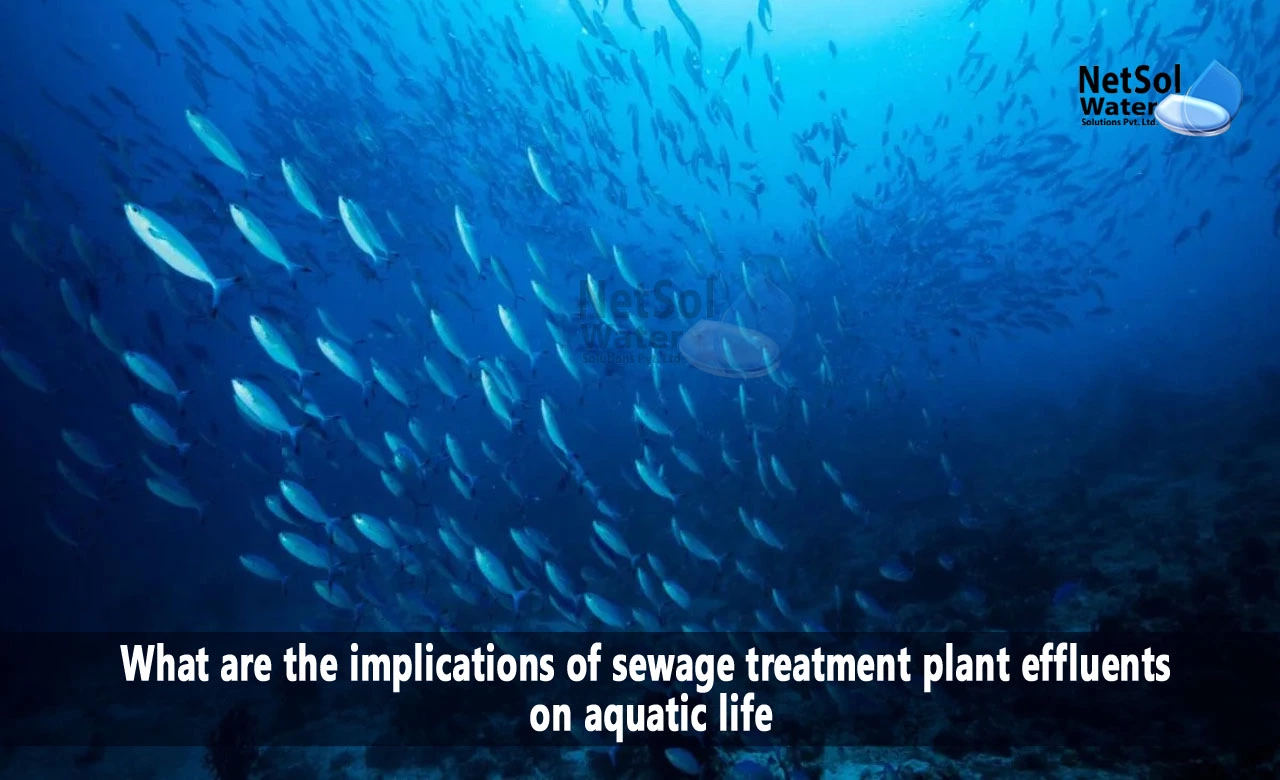What are the implications of STP Plant effluents on aquatic life?
Sewage treatment plants are essential in defending public health and the surroundings by treating wastewater. However, the effluents discharged from these centres may have significant implications for aquatic existence in receiving water bodies. In this blog, we will explore the impact of sewage treatment plant effluents on marine ecosystems and the measures taken to protect and restore those critical herbal habitats.
The Impact of Sewage Treatment Plant Effluents
1. Nutrient Enrichment: Sewage treatment plant effluents can also include extra nutrients, particularly nitrogen and phosphorus. When these nutrients input aquatic ecosystems, they could lead to eutrophication, a method that results in excessive algae growth. This can use up oxygen stages, harm marine organisms, and disrupt the balance of the environment.
2. Toxic Substances: Effluents might also incorporate numerous contaminants, including heavy metals, pharmaceuticals, and personal care merchandise. This pollution can collect in the water and affect aquatic organisms, main to long-term health troubles and reduced biodiversity.
3. Microbial Contamination: Pathogens and faecal coliforms may survive the remedy system, posing a chance to the health of aquatic life and human users of water our bodies, mainly in regions wherein handled water is used for recreational purposes.
Measures to Protect and Restore Impacted Ecosystems
1. Advanced Treatment Technologies: Sewage treatment vegetation is increasingly adopting advanced treatment technologies to reduce the release of nutrients and contaminants. This consists of tertiary treatment procedures and using specialisedsystems to remove pollutants.
2. Buffer Zones and Riparian Restoration: Buffer zones of local plants along water bodies help filter and absorb pollution from effluents. Restoring riparian regions complements environmental resilience by offering habitat and lowering the runoff of contaminants.
3. Monitoring and Water Quality Assessment: Regular tracking of water pleasant and aquatic lifestyles is critical to perceive adjustments and capacity troubles related to sewage remedy plant effluents. Authorities can take motion based on monitoring statistics to defend aquatic ecosystems.
4. Environmental Impact Assessments: Before the construction or expansion of sewage remedy vegetation, environmental impact checks are conducted to assess capacity consequences on surrounding ecosystems. These assessments help lay out mitigation measures and reduce harmfuleffects.
5. Wetland Treatment: Constructed wetlands can serve as a natural remedy gadget, similarly purifying effluents earlier than they input receiving waterbodies. Wetlands additionally provide habitat for various species.
6. Regulations and Compliance: Stringent policies are imposed on sewage treatment plants to ensure compliance with discharge limits and water best requirements. Regular inspections and enforcement assist in decreasing the impact on aquatic ecosystems.
7. Education and Public Awareness: Public consciousness campaigns promote responsible water usage and disposal of family and commercial waste. Educated groups are much more likely to undertake green practices that lessen the pressure on sewage remedy plants and, in flip, guard aquatic ecosystems.
8. Biodiversity Conservation: When sewage treatment plant effluents have triggered damage to specific aquatic species or habitats, conservation efforts can be initiated to protect and repair those populations or regions.
Conclusion
Sewage treatment plants are essential for public health and environmental protection, but their effluents can pose demanding situations for aquatic ecosystems. Careful management, technological advancements, and a dedication to environmental stewardship are crucial in mitigating those effects. As we increase and keep our sanitation infrastructure, our knowledge of the interconnectedness of sewage treatment plant effluents and aquatic lifestyles facilitates us to strike a balance, ensuring the preservation of these valuable ecosystems for future generations.
Netsol Water is Greater Noida-based leading water & wastewater treatment plant manufacturer. We are industry's most demanding company based on client review and work quality. We are known as best commercial RO plant manufacturers, industrial RO plant manufacturer, sewage treatment plant manufacturer, Water Softener Plant Manufacturers and effluent treatment plant manufacturers. Apart from this 24x7 customer support is our USP. Call on +91-9650608473, or write us at enquiry@netsolwater.com for any support, inquiry or product-purchase related query.



